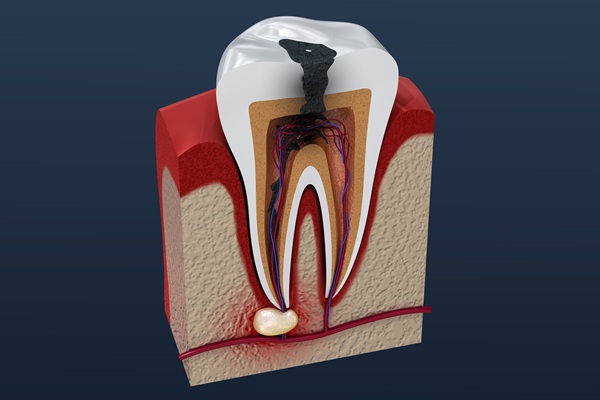How to Protect Your Dental Crowns

Once you’ve made the investment to strengthen or fix your smile, it’s important to protect your dental crowns.
A dentist may recommend a dental crown for a variety of reasons. They are beneficial for preserving a tooth and preventing expensive and painful breaks. They strengthen your teeth for everyday use, and protect and improve the appearance of your smile.
Crowns are also used to cover misshapen teeth, to hold cracked broken teeth together or to keep a bridge in place. They are like caps, which surround the tooth to offer protection. Once in place, a crown can last between five and 15 years depending on how well it is cared for. The following are a few things you can do to protect your dental crowns.
Basic oral hygiene
A crown does not ensure that a tooth will not experience decay or gum disease. It is important to protect your dental crowns and your teeth by continuing good basic oral hygiene. Continue to brush teeth twice a day, floss and rinse with an antibacterial mouthwash daily. Add the use of interdental cleaners like picks and brushes that provide a deeper clean between teeth, paying special attention to the areas around the crown.
Avoid consuming acidic or sweet foods and drinks that weaken, stain or cause sensitivity in your teeth. Continue to schedule regular cleanings twice a year at the dentist's office.
Keeping your mouth clean will help your gums and teeth stay free from infection and protect your dental crowns.
Stop grinding
Grinding your teeth, also known as bruxism, can wear down crowns. If you are prone to grinding while you sleep, protect your dental crowns by wearing a night mouth-guard. Grinding can occur due to stress, anxiety, or a misaligned bite. It is important to discover the underlying reason and to treat that as well as the symptom.
Stop crunching
Eating hard candy, chewing on ice, or using teeth as tools to open packages or untie knots can break or crack a crown or a tooth. Refrain from doing so — use your teeth as teeth, not tools. Crowns are an investment and need to be properly taken care of.
Wear protection
Tooth injury is common with combat sports. Stay safe and prevent damage to your crowns and teeth by wearing a mouth-guard when playing sports. Don’t stop doing what you love but take protective measures while you are doing it.
Maintain the perfect bite
The dentist forms and custom shapes a crown to align perfectly with your other teeth. This creates a comfortable bite. Occasionally, the alignment is slightly off the first time and may need an adjustment. Over a few years your bite may even change and need to be fixed to protect your dental crowns.
The bottom line
Protecting your crowns will extend their life. Schedule regular cleanings, have your bite checked for abnormalities, speak up when there is pain, stop grinding and stop crunching. The longevity of your crown depends a great deal on your ability to protect your investment on a daily basis.
Are you considering ways to protect your dental crowns in the Lincroft area? Get more dental crown information at https://lincroftvillagedental.com.
Recent Posts
A dental crown can protect the remaining dental structure. It can restore and protect the natural tooth. Maintaining this restoration can help keep your smile intact for a long time. Here are some care tips for your new dental crown.Specific foods can damage a dental crown. Some raw fruits and vegetables are firm and hard.…
A dental crown can save a tooth that is in danger of extraction. Dental crowns serve a dual purpose. They reinforce the tooth structure and improve the appearance of the smile at the same time. This means that a dentist could recommend a crown as a treatment for tooth decay or injury. A cosmetic dentist…
A dental crown is a type of dental restoration that covers a damaged or weakened tooth and improves its size, shape, health, and appearance. There are certain signs a dentist may look for to determine whether a dental crown is the best form of restoration for a patient or if another restoration may be more…
A dental crown is a versatile restoration that can be used to address a wide range of dental issues like a cracked, chipped, decayed, deformed, or broken tooth. The crown covers up the part of the tooth that is visible above the gums, protecting it from further damage and acids made by oral bacteria.The severity…


